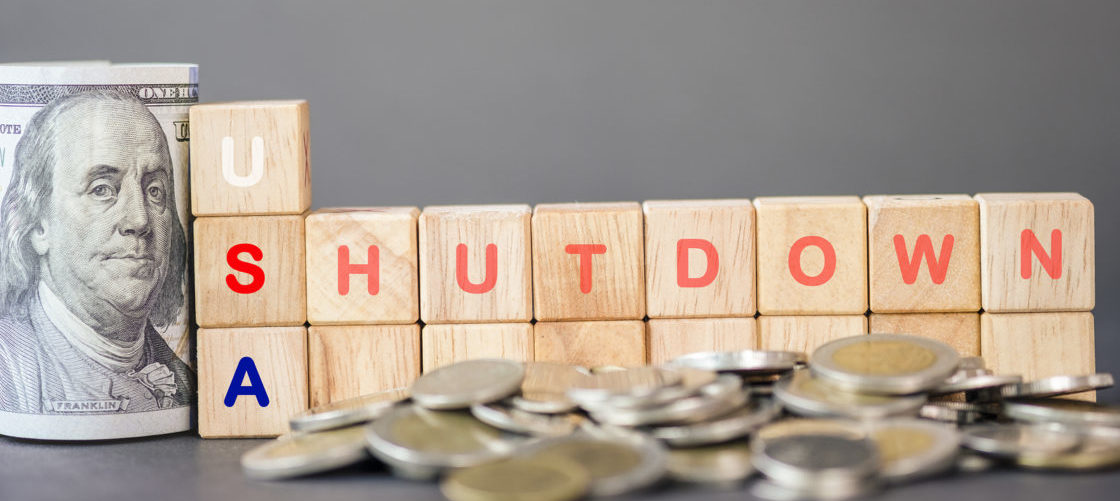It’s a fact: Most people feel Financially Secure even when they’re living financially on the edge. That’s why, for many Americans, the recent U.S. government shutdown was a shocking wake-up call.
Starting just before the 2018 holidays, the federal government shutdown became a record-breaking, 35-day catastrophe that ended only with the most tenuous three-week reprieve. And an even longer shutdown is possible this month or, really, at any time in the future. So taking a good look at the money lessons we learned the hard way during that shutdown is critical.
 A Security Buffer is non-negotiable
A Security Buffer is non-negotiable
If you caught any news stories during the shutdown, and really you couldn’t miss it, you heard story after story of government workers scrambling to find money when their first paycheck failed to arrive. And, when the second zero-dollar check arrived at the shutdown’s one-month mark, even more were desperate to pay rent, buy food and keep their lights on.
How did this happen? According to recent Bankrate surveys, 61% of Americans are currently unable to cover even $1000 of unexpected costs from their savings. And only 22% of people surveyed expressed serious discomfort with the amount they had saved for an emergency.
It’s time to stop being complacent about your Security Buffer.
The shutdown made clear that building a strong Security Buffer is an absolute necessity. If you’re faced with a government shutdown, a job loss or any unanticipated expense, saving while money is coming in, so you’re ready to take the hit if the Cash Flow suddenly stops, is essential.
There’s no one coming to bail you out
Before the shutdown, you probably felt pretty secure — even if your bank account balances were circling the drain. After all, the government would always be there with housing aid and food stamps if you needed it. And there would always be banks to borrow from . . . right?

But, with the government shuttered, it was only a month before SNAP benefits (food stamps) stopped going to those who qualified for the program. And government workers with no savings and no income are hardly the most attractive candidates for low-interest personal loans.
The hard truth is that no government, business or person will bail you out when things hit the fan. Federal services were closed, businesses were looking to turn a low-risk profit and plenty of other people were drowning in financial worry.
So, before the next crisis hits your family, make Paying Yourself First a priority. Be sure that you have the money and resources you need to weather a financial storm.
A line of credit isn’t the same as a paycheck
As the shutdown dragged on, tone-deaf politicians dismissed Americans’ rising financial panic by insisting that those people could simply take out personal loans. But loans and lines of credit are hardly the get-out-of-jail-free cards that they might appear to be.
 First, you face the hassle of applying among a sea of other struggling citizens. Then there’s the very real concern that you won’t qualify for favorable loan terms or that you’ll be denied outright. Then you wrestle with the desperate option of turning to payday loans and other predatory financing. And, finally, you’re likely to take a credit hit even if you can borrow the funds you need.
First, you face the hassle of applying among a sea of other struggling citizens. Then there’s the very real concern that you won’t qualify for favorable loan terms or that you’ll be denied outright. Then you wrestle with the desperate option of turning to payday loans and other predatory financing. And, finally, you’re likely to take a credit hit even if you can borrow the funds you need.
The truth is this: A loan is not a solution to an inadequate Security Buffer. Pulling money from a line of credit is in no way equivalent to earning money from a paycheck or withdrawing money from your personal savings.
People do care
In the midst of the panic, the struggle and political mudslinging, an amazing thing happened. Everyday people and whole communities stepped up.
While government services shut down, small businesses and individuals began filling the gap — offering discounts, freebies and true support for furloughed federal employees. During a dark time in people’s lives, countless compassionate people found very real ways to bolster their fellow Americans and help them ride out the shutdown.
And, while there’s a silver lining to the historic shutdown, the fact remains that we need to be ready for the next social crisis or personal disaster. After all, only once you’re prepared to weather money trouble can you truly feel secure in your family’s financial well-being.
image credit: Bigstock/Dilok
Dr. Tony is the co-founder of MindShift.money and the best-selling author of three books on personal and business finances. Having achieved Financial Freedom at 27, Dr. Tony believes that through Financially Fit Bootcamp and Cash Flow Cure everyone can get there. He has made it his life’s mission to help others live a life where their money works for them—not the other way around.
